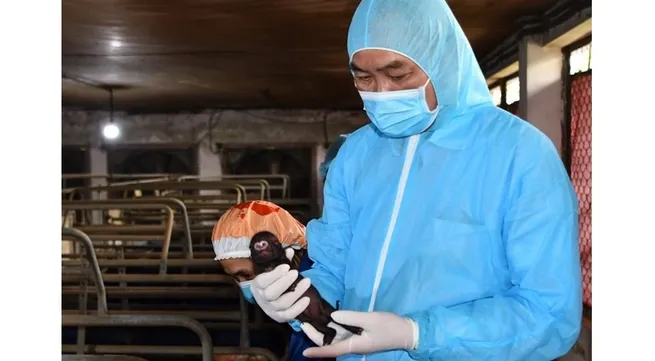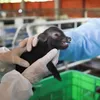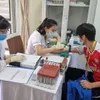Vietnam clones swine from ear tissue somatic cell

On March 14, the Ministry of Agriculture and Rural Development (MARD) announced the results of a project from the National Institute of Animal Sciences in which they have successfully researched and mastered the technology of cloning Lon I or I pig (Vietnamese Pot-bellied pig) from somatic cells derived from ear tissue of mature I pigs – a traditional Vietnamese breed.
The project was kick-started in July 2020, using the somatic cell nuclear transfer technology with the advantage of easy to manipulate when transferring the nucleus of "donor cell", while creating much more embryos in a short time. The transfer of 5-6-day old pig embryos improves conception rates from 24% (at the world average) to 61%. On March 10 this year, four cloned piglets were born and are healthy and growing well.
According MARD Minister Nguyen Xuan Cuong, with the very limited equipment conditions, the research team was both creative and persistent in making good use of the era’s achievements to turned them into Vietnam’s results.
This is a great progress in science and technology of Vietnam in the field of animal cloning, as well as affirming and enhancing the role and position of Vietnam's science and technology in the region and the world.
The outstanding achievement also opens a new research direction on the application of animal cloning technology in breeding, combining animal cloning technology with gene editing technology to create livestock breeds with high productivity, disease resistance, and climate change adaptation, while at the same time making cloned animals for organ transplant in the future.
In Vietnam, the I pig is almost extinct and is classified as endangered.
“The project results show that we made the right choice and hit the target animal because pigs make up 65-70% of the food basket. This is also a strategic direction of the livestock industry in the coming time towards gradually recovering Vietnam's endemic animals to become specialty food products, not only to supply domestic demand but also the world market,” Minister Cuong emphasised.
With their latest achievement, in the near future, scientists from the National Institute of Animal Sciences would continue to review the entire process and promote the application of this method to preserve endemic indigenous livestock breeds in the direction of developing specialty livestock products for the breeding strategy during 2021-2030, towards 2045.
Tags:





